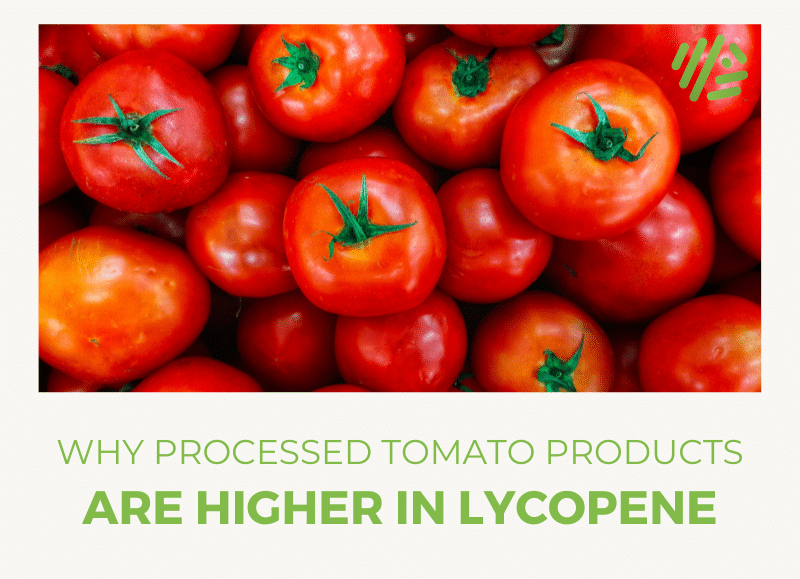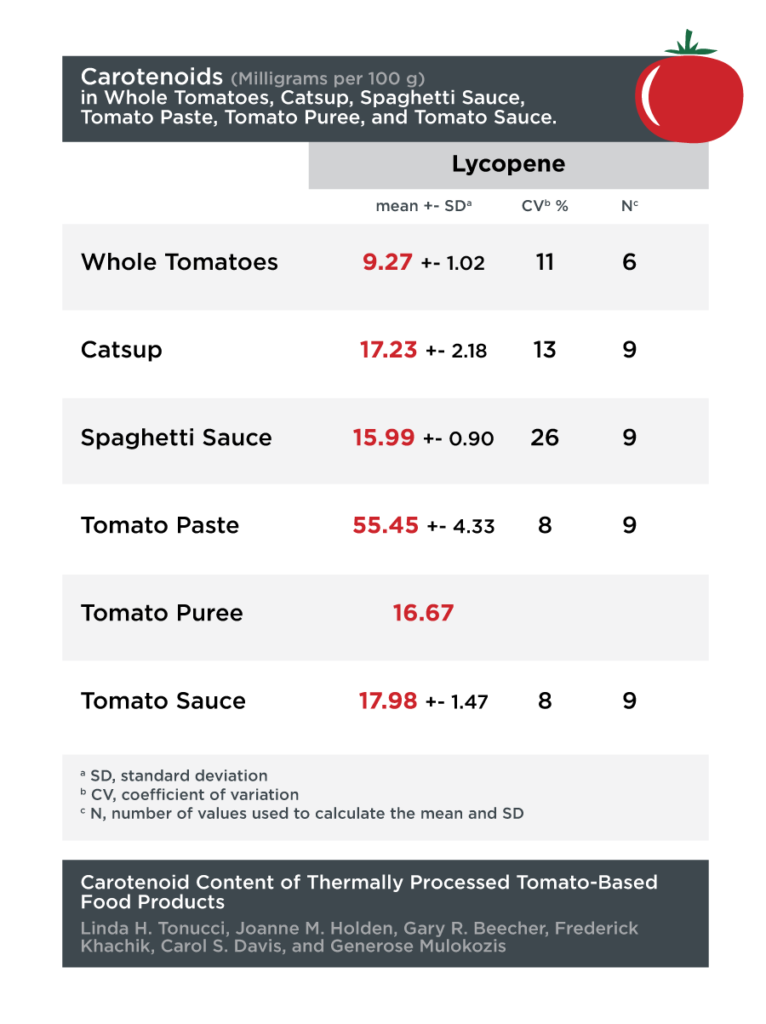Lycopene for Prostate Health: How to Get the Biggest Bioavailable Dose

Contents
The CDC estimates that 6 out of every 100 men who are 60 years old today will get prostate cancer by the age of 70.
Lycopene may help protect men’s prostate health as they age. Let’s dive into the best tomato products for lycopene bioavailability.
Does lycopene support prostate health?
Plant based diets, low in Omega 6 fats and animal fats, have shown some promise in the fight against prostate cancer.
And within the sphere of plant based nutrition, lycopene, a type of carotenoid found in high amounts in tomatoes and tomato products, comes up again and again in the prostate health discussion, with many studies pointing towards lycopene’s ability to reduce the risk of developing prostate cancer.
However, study results are mixed. Although there is promising data, not every sign points to lycopene as protective against prostate cancer.
This paper provides a detailed overview on the state of the science regarding prostate cancer and lycopene. I found one of the studies, related to BPH and PSA levels in elderly men, particularly interesting.
Authors found lycopene supplementation for 6 months reduced PSA levels and stopped prostate growth.
This review of studies related to lycopene and prostate cancer finds conflicting evidence.
To quote the paper:
Five studies support a 30% to 40% reduction in risk associated with high tomato or lycopene consumption, three are consistent with a 30% reduction in risk, but the results were not statistically significant, and seven were not supportive of an association. The largest relevant dietary study, a prospective study in male health professionals found that consumption of two to four servings of tomato sauce per week was associated with about a 35% risk reduction of total prostate cancer and a 50% reduction of advanced prostate cancer. Tomato sauce was by far the strongest predictor of plasma lycopene levels in this study.
Notice how the quote above mentions tomato sauce. Authors of some studies have speculated that the efficacy of lycopene in protecting the health of the prostate hinges on bioavailability, i.e. the form of tomato product you consume as your source of lycopene determines whether that lycopene ends up in your blood and plasma.
Making lycopene bioavailable
Believe it or not, the bioavailability of lycopene varies considerably depending on the food source consumed. Fresh tomatoes are actually the worst form of tomato to eat if your goal is increased lycopene levels. Processed foods, such a tomato and spaghetti sauce, soup, salsa, and tomato paste are better sources of lycopene than fresh tomatoes. (R), (R), (R)
Processed tomato products give us more lycopene
This study found lycopene levels from ingesting tomato paste were 2.5 times higher than eating raw tomatoes!
In this study, the authors went to their local grocery store, loaded up on processed, tomato based food, and then tested lycopene levels. Again, tomato paste was found to have the highest concentration of bioavailable lycopene. Interestingly, the study found lycopene values did not change when brand, or the geographic region of the store was taken into account.

I know what you’re thinking: I see a trend here, the more we process lycopene, the more bioavailable it becomes, so is the ultimate source of lycopene a supplement?
Perhaps.
This study looked at lycopene levels in a group who took tomato paste as their source of lycopene vs. a group who took a lycopene supplement. The authors found both sources exhibited similar bioavailability in human plasma.
Lycopene is best consumed with fat
For maximum bioavailability, lycopene is best consumed with fat.
Why?
Lycopene is a “lipid soluble compound,” meaning lycopene dissolves in fat, allowing for greater absorption when we east some form of healthy fat with our chosen source of lycopene. (R)
And as you may have guessed, the issue of carotenoid absorption when we eat fat has been studied. This study, conducted at Ohio State, found that adding avocado to salsa increased absorption of lycopene by 4.4 times! The absorption of other carotenoids was increased even more dramatically by adding avocado oil or avocado. (R)
Similarly, this study found carotenoid bioavailability increased when full fat dressing was added to salad.
The bottom line
The bottom line is that there is evidence to support lycopene’s role in supporting prostate health, however, you’re unlikely to get the lycopene you need from consuming raw tomatoes.
Instead, the science shows that the highest amounts of bioavailable lycopene are actually to be found in processes foods, and in supplements. Add some fat to your source of lycopene and you’ll absorb even more.
For more on taking care of the male prostate, see my post on natural therapies for prostatitis.



